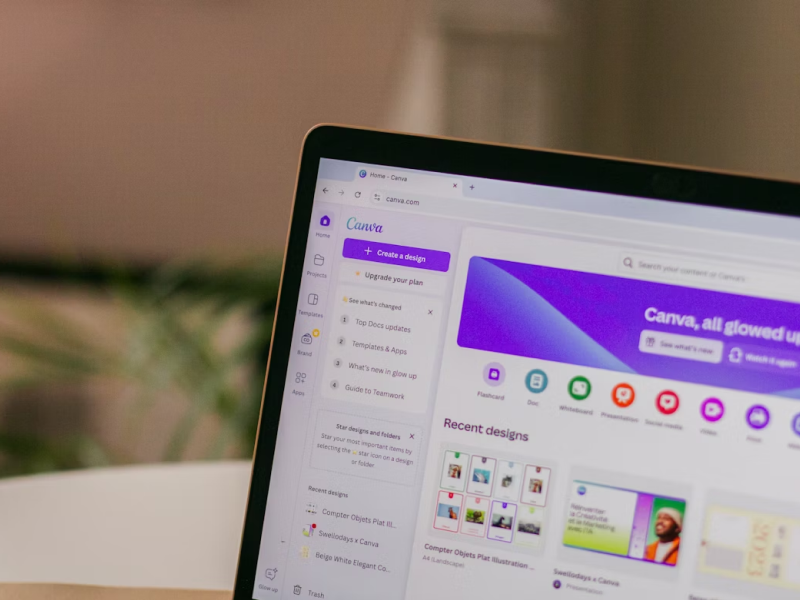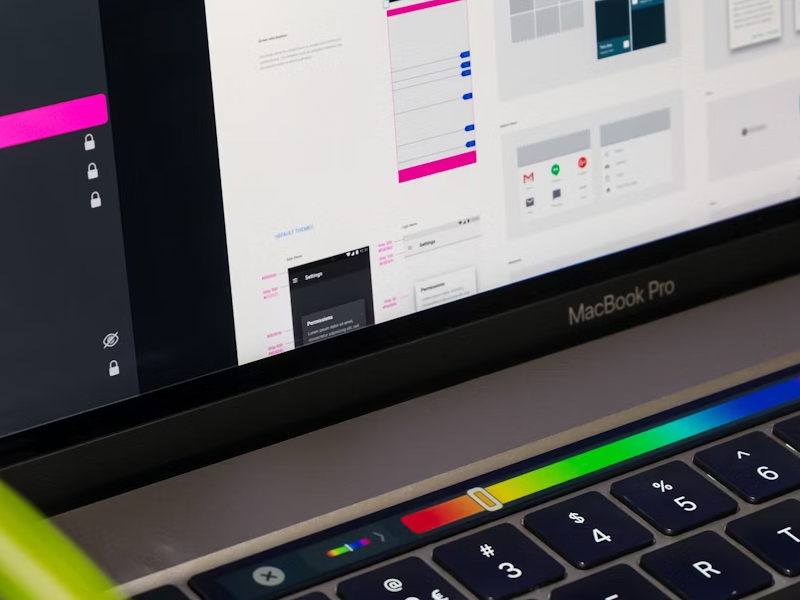“The next big thing is the one that makes the last big thing unusable.” — Blake Ross, Co-creator of Mozilla Firefox.
With the rapid advances of the technological revolution, UX design has been subjected to various changes and discoveries. But it’s not just technology and AI that has changed this field. As people, our wants and needs are constantly changing. And so is the entire user experience that must fulfill these needs.
For this reason, it has become more and more apparent that the digital world should and will focus on the enhancement of UX through a user-centric approach. Besides increasing user satisfaction with a website or an app design, UX enhances usability and accessibility. In fact, without a well-established user experience, almost any product is bound to fail.
If we want to understand what the future of UX design is reserving for us, we have first to understand the current state of the digital design industry.
One of this year's biggest UX design trends has been the personalization of user experiences. Yes, it may seem intuitive that a website or app that mimics user behavior and responds with solutions that are as specific as possible would be a clear choice. However, until today – where we have apps like TikTok with an algorithm that is incredibly good at targeting users – there was a long way to go. While back then, UX designers were mainly focused on functionality, now we have been focusing on creating customized user experiences.
Another trend that has lately been on the rise is micro-interactions. These are functional animations that offer users visual guidance. These integrated elements have a significant impact on the overall user experience. From social media like and share buttons to progress indicator bars, these micro-interactions have become a standard for UX design.
Even though 3D design is by no means a brand-new discovery, it has been growing in popularity this year, becoming one of the UX design trends that most UX designers have jumped to. However, new 3D tools have been emerging, and some quite innovative ones have come out lately. It is now more common and accessible than ever to integrate 3D into the user experience component of design.
1. AI
AI acts on the principle of machine learning algorithms to cater to each user's individual preferences and behaviors. Even though AI technologies simplify some of the design processes, there are many other things that UX designers must take upon themselves. AIs are far from perfect standalone solutions. User experience itself as a subject matter entails a deep and comprehensive understanding of human psychology and digital patterns. What AI can help us with at a base level is to tackle more ordinary tasks that would otherwise be time-consuming.
The road towards automation has already been paved, and it is now easier than ever for UX designers to interact with AI software during their design process. In the future, the collaboration between human designers and AI will become a normality in the creative system - AI can take care of the technicalities of UX while we can focus on the more nuanced, human aspects of the work.
2. New Market
By far, one of the most influential events of the past three years was the COVID-19 pandemic. It has forever altered the state of technology and the way we view it. During the isolation period of the pandemic, many UX designers have switched to working remotely. Not only was it safer to activate from home, but it had many other benefits, such as cost-effectiveness and more flexible working hours. Due to this instrumental change in work culture, the design market has transcended to a more mixed market.
Working from home allowed us to interact with designers from various cultures we would have never collaborated with. With these, the doors were opened for a market with new needs and characteristics. In the following years, this movement will only continue to expand as more and more UX designers turn to remote work. Cultures have very different views on many subjects, so we will need to adapt to their visions and demands because the core of design is cooperation. Besides this, new tools will emerge to support and simplify the work of designers.
3. Responsive Design
We have seen a clear current towards inclusivity in design in the last few years. But what about device inclusivity? Responsive design has the specific aim of making a website or app accessible from as many types of devices and browsers as possible. This direction for UX design is obvious from the sole reason that the market is expanding and growing really fast. This creates a need for websites that match the dynamism of the technological advances.
As UX designers, we have to keep responsiveness in mind as its relevance will continue to increase in the near future. Some of the practices that will likely gain popularity and become UX design trends in the following years will include:
- Flexibility
- Mobile-first design approach
- Minimalism
- Scalar vector graphics
4. Voice Interfaces
Another direct consequence of the COVID-19 pandemic was the adoption of no-contact interfaces. Because touch became a common means of contacting the virus, UX designers have shifted to creating improved technology that is based on other senses, such as the voice. The elimination of button usage has shown users that they can save a lot of time. And time is money.
Voice user interfaces, also known as VUIs, have been evolving quite a lot in recent years. While most of us are familiar with Alexa and Siri, we are observing a rise in more advanced technologies based on voice recognition that provides new possibilities. There are many situations in which we cannot use touch, such as when we are driving. VUIs can make the UX safer, faster, and more efficient, so we expect to see this specific part of the design industry grow in the future.
5. Human-centered Design
Users seek a design that mimics real life. A stiff, robotic, and artificial experience will make anyone stray away from a product. This is why it is more important than ever for us to manufacture UI UX designs that resonate with the human component.
From the copies to the imagery and animations, UX design has to facilitate a prosperous environment for a blooming relationship between the brand and the consumers. This entails that the focus will continue to be on designs that are intuitive, accessible, and overall enjoyable.
Personalization is another trend that will continue to be on the rise. We can already see this current on virtually any social media platform. Instagram is a great example, as its algorithm monitors user activity and caters to their behavior with tailored content and ads. It is expected that UX design will maintain the aim of personalizing experiences.
6. Scrollytelling
An interesting concept that has been discussed in the design community is scrolly-telling. The name is suggestive, as it refers to a visual type of storytelling that allows users to control the pacing of a story. This practice mainly comes in support of the usability of an app or a website.
Perhaps the most evident reason why scrolly-telling will continue to gain popularity and become one of the next UX design trends is that it enhances the interactivity component of a design. When paired with captivating animations, scrolly-telling can greatly enhance the user experience. Another benefit of scrolly-telling is that it can highlight different parts of the content while also making information more digestible for users.
The UI UX design industry reserves a pretty complex future for the UX component.
Whether we look at the advance of AI, the focus on human-centric designs, or aesthetical trends such as minimalist design or the increased use of dark mode, it is both essential and interesting to keep a close eye on the updates we will see in UX design.
We at uinkits understand the importance of inputs in great user experiences and creating amazing UI designs. That’s why we’ve developed a Figma UI Kit with design components that include these essential UI elements that enable you to design intuitive and user-friendly interfaces effortlessly.
“You press the button, we do the rest,” – Kodak.
Inspired by this iconic tagline from Kodak, we believe in simplifying the design process for you. Our Figma UI Kit, uinkits, is a complete design system with UI components that allows you, as a UI UX designer, to create your products as quickly as pressing a button.
Our design system includes UI components, variables, cards, buttons, and everything you need for your design process. All you have to do is take your UI design component needed, and you’re ready to use it in your designs!








